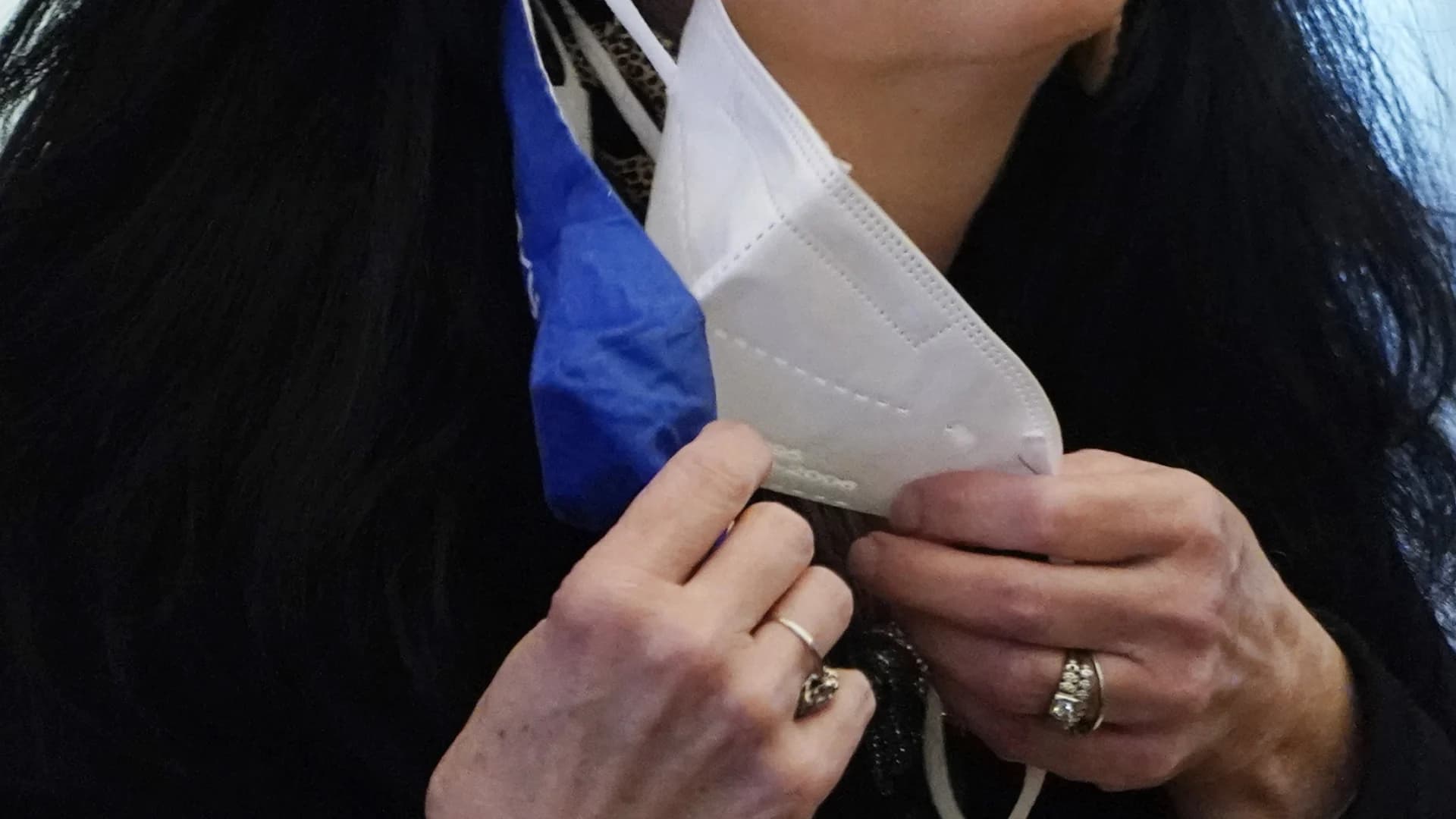More Stories

Correct and consistent mask use is a critical step everyone can take to prevent getting and spreading COVID-19, according the U.S. Centers for Disease Control and Prevention.
Masks work best when everyone wears them, but not all masks provide the same protection. When choosing a mask, health officials say to look at how well it fits, how well it filters the air, and how many layers it has.
Here are some tips to improving how your mask protects you:
1. Fit
Make sure your mask fits snugly against your face. Gaps can let air with respiratory droplets leak in and out around the edges of the mask.
2. Layers
Pick a mask with layers to keep your respiratory droplets in and others’ out. A mask with layers will stop more respiratory droplets getting inside your mask or escaping from your mask if you are sick.
3. Choose a mask with a nose wire
A nose wire is a metal strip along the top of the mask. Nose wires prevent air from leaking out of the top of the mask. Bend the nose wire over your nose to fit close to your face.
4. Use a mask fitter or brace
Use a mask fitter or brace over a disposable mask or a cloth mask to prevent air from leaking around the edges of the mask.
5. Check that it fits snugly over your nose, mouth, and chin
Check for gaps by cupping your hands around the outside edges of the mask. Make sure no air is flowing from the area near your eyes or from the sides of the mask. If the mask has a good fit, you will feel warm air come through the front of the mask and may be able to see the mask material move in and out with each breath.
6. Add layers of material
Use a cloth mask that has multiple layers of fabric, or wear one disposable mask underneath a cloth mask. The second mask should push the edges of the inner mask against your face. Make sure you can see and breathe easily.
7. DO NOT combine two disposable masks
Disposable masks are not designed to fit tightly and wearing more than one will not improve fit.
8. DO NOT combine a KN95 mask with any other mask.
Only use one KN95 mask at a time.
More from News 12
1:28

5 simple steps for long-term benefits to your health and heart
1:32

8 tips for working safely during hot weather
3:31

Guide: Ways to set your child up for financial success
3:18

Guide: The importance of good sleep and how to get it

Guide: Mental health resources available in the tri-state
9:36
